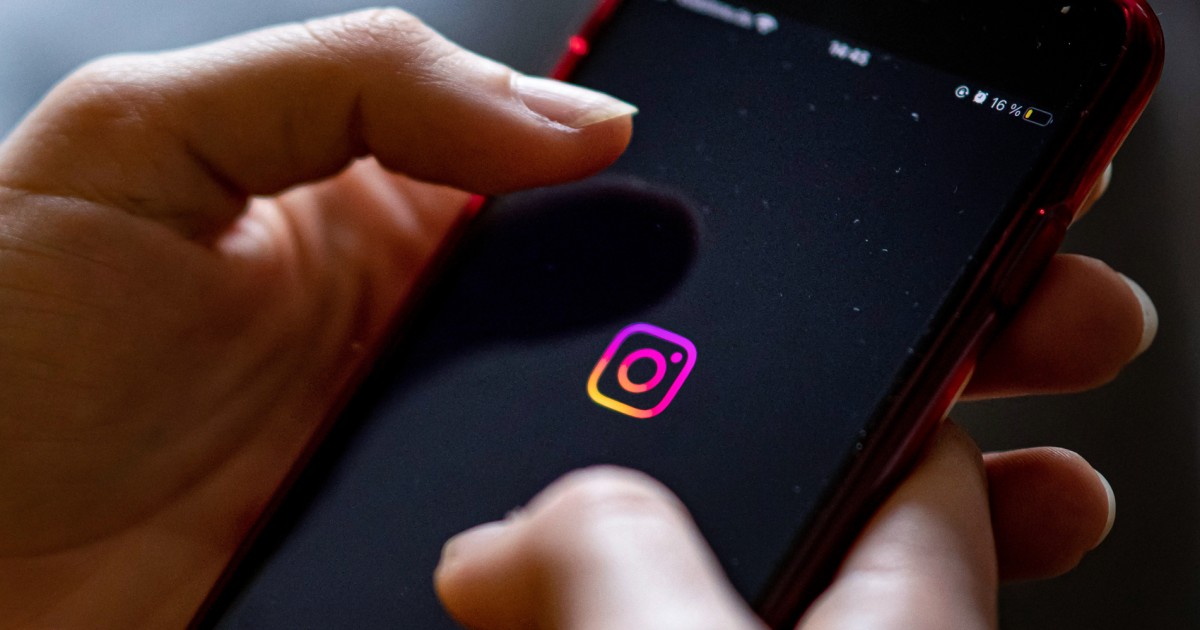By Olivia Solon -
NBC News
Meta, the parent company of Facebook, launched on Thursday a tool that it has developed together with the British organization Revenge Porn Helpline to allow users that their most intimate images are not uploaded to Facebook, Instagram or any other social network without their consent.
This mechanism is based on a pilot program that Facebook launched in Australia in 2017 that makes it easy to send files to a global site called StopNCII.org if the user is concerned about intimate photos or videos being shared on the Internet by a third person.
"It's a huge step forward," said Sophie Mortimer, director of the Revenge Porn Helpline.
"For me, the key is to return this control over the content to the people directly affected by this problem, so that they are not at the mercy of the whims of an aggressor who threatens to share them," he said.
The logo of Meta, Facebook's parent company, at the company's headquarters in Menlo Park, California.Tony Avelar / AP
Karuna Nain, Meta's director of global security policy, explained that the company has changed its way of approaching this problem and considered that using an independent website will help other companies use this system and reduce the burden felt by victims of this. type of abuse for having to report their situation to "each and every one of the platforms."
During the submission process, StopNCII.org requires people to confirm that they appear in an image.
They can select material on their devices, including manipulated photos, showing them nude or nearly nude.
The images or videos are then converted into unique fingerprints known as
hashes
, which are transmitted to other companies such as Facebook and Instagram.
StopNCII.org, which was developed together with 50 global partners specializing in image abuse, online safety and women's rights, will not have access to or store copies of the original images.
Instead, they will be
hashed
in users' browsers and StopNCII.org will get only the copies of these types of fingerprints.
[What Facebook knew about how it radicalized its users]
Other large platforms have expressed interest in joining the initiative, including social media companies, adult sites and bulletin boards, Mortimer said, although they are not yet ready to announce their participation in the show.
"Having a system open to all parts of the industry is essential," he stressed.
"We know that this material is not shared only on one platform and a much more joint approach is necessary," he insisted.
Each participating company will use a
hash
comparison technology
to check whether images that match the
original
hashes
have been uploaded to their platforms
.
If they found matches, the content moderators of the platforms would review the images to make sure that they violate their policies and that the tool has not been misused by someone who submits another type of non-infringing image.
If the platforms found that the images or videos violate their policies, they will delete all instances and block attempts to re-upload them.
Why didn't Facebook run a campaign to promote the vote for Latinos?
An expert explains it
Oct. 26, 202104: 33
In Facebook's 2017 pilot project, images were reviewed by human moderators at the time of submission and
hashed
, prompting some criticism for privacy reasons.
Since then, Facebook has developed more systems to combat this situation on the platform, NBC News reported in November 2019. However, at the time, the company's head of security, Antigone Davis, said that further collaboration with other tech companies to prevent people who claim to share intimate images without the consent of the individuals featured in them from simply moving to another platform.
"It is important that Facebook and the industry recognize that they cannot be in the forefront of this," Mortimer remarked.
[Facebook changes its name: Meta will be the new brand that houses all its businesses]
"A
hash
bank
is something that should be held independently in a neutral space, and we have a lot of public trust and a long history of helping people affected by the sharing of intimate images without consent," he said.
Mortimer said she applauds the fact that Meta recognized the problem and was "willing to put in the funding and expertise" to create the tool, and subsequently "walk away."
People who submit material to the platform can also track their cases in real time and withdraw at any time.
"They can see that their
hashes
have been uploaded and when there has been a match with a partner platform," Mortimer detailed.
"Sometimes customers may want the images removed but they don't want to know the numbers."
Facebook announces that it will end its facial recognition system
Nov. 3, 202100: 26
Meta and Revenge Porn Helpline recognize that people can abuse the system by submitting non-violent images only to have them removed.
But Mortimer said the review process by human content moderators should mean that the images would be restored relatively quickly.
Meta's Nain also noted that the system can only detect exact matches in images, so if people have "very offensive intentions" they can make small changes to images or videos to evade detection, creating a frustrating mole game for image subjects.
"There are many things we will have to monitor. How can we make the system even more victim-focused? Our work does not end here," Nain clarified.
Although the tool has the support of 50 partners around the world, at its launch it is only available in English.








